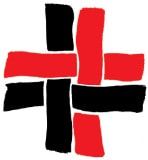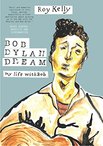But there are a few books, fiction and non-fiction, with which I have persevered, and which will remain on my Kindle or on the culled bookshelves for whatever reason; as I anticipate a plethora of book tokens at Christmas, and therefore yet more stuff to read, it’s worth recording those which have made their mark on my consciousness in 2016.
They have not necessarily made me a better person but as FE Smith remarked to a judge who claimed that after listening to the evidence he was ‘none the wiser’, ‘No, m’lud, but far better informed’.
It is, clearly, to non-fiction that I turn in order to learn. This year, four have stood out.
Sarah Bakewell’s At the Existentialist Café (with the wondrous sub-title of Freedom, Being and Apricot Cocktails) places existentialist thought in the context of existentialist living – praxis I think we used to call it – and is both a deceptively simple introduction to the works of Sartre, de Beauvoir, Camus, Merleau-Ponty et al but also a fascinating The Mandarins-like account of their feuds, debates, politics and love affairs. (It also makes the unreadable Heiddegger interesting which is an achievement in its own right.)
In August 1920, Ray Chapman of the Cleveland Indians was struck on the head by a ball thrown by Carl Mays of the Yankees. Mays had joined the Red Sox on the same day as Babe Ruth before moving on, and the Sox players were among the most vehement in their condemnation of the pitch. Mays, after all, had form. It is a tragic event in the history of baseball, but Sowell places it in the context of class and culture, money and major league politics, the contrasting characters of the popular, charismatic Chapman and the surly, churlish Mays as well as the pennant race of that year. The story itself is tragic; the context is fascinating and brilliantly told.
It is a political thriller which has, unsurprisingly, received little attention from the mainstream media, which emerges with about as much credit as the majority of Labour MPs and the party administration. To read this book is to become intimately acquainted not solely with the factionalism on right and left which has plagued the party, but also with the larger picture: what is the Labour Party? What's the point of it in a post-Brexit world?
I read – and reviewed - this exemplary memoir by poet, critic and uber-tweeter Roy Kelly earlier this year. Despite the sub-title, the most interesting sections are Bobless, because although we may measure out our lives in Dylan albums and shows, we are not defined exclusively by our relationship with him. What interests us is what draws us to Bob, those Wordsworthian spots of time which make us what we are.
Roy’s book is his own Prelude and I commend it to you.
Next time, fiction.
Today from the everysmith vaults: Bob from 1989. It’s a while now and I had forgotten just how good those shows were.









 RSS Feed
RSS Feed